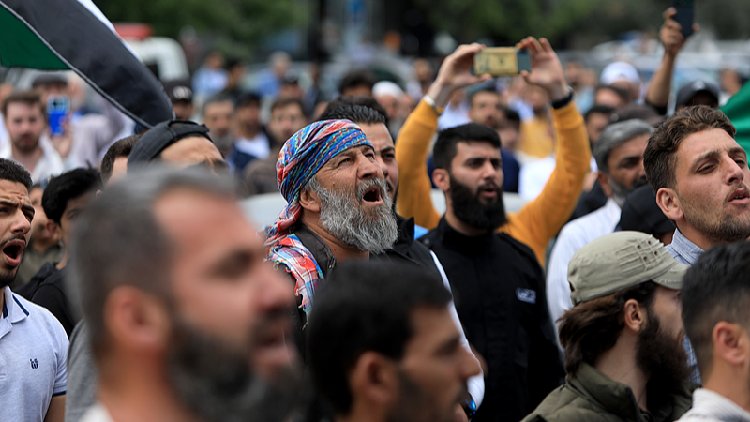Israel dispatches troops to southern Syria, with airstrikes sparking condemnation
The Israeli military confirmed on Saturday that it had sent troops to southern Syria to prevent the entry of "hostile forces" into areas with a Druze majority, following a notable escalation in the region. On Friday night, Israeli warplanes...

On Friday night, Israeli warplanes conducted what has been termed "the largest air attack" on Syria this year, striking more than 20 locations across six provinces. This operation has heightened regional tensions and attracted widespread condemnation.
The Israel Defense Forces reported the involvement of 12 fighter jets in the airstrikes, which targeted significant infrastructure, including anti-aircraft cannons and a surface-to-air missile launcher. The IDF reiterated its commitment to "eliminate any threat in the area," stating that operations would persist with a focus on ensuring Israel's security.
The Syrian Observatory for Human Rights described the bombardment as the most intense of the year, with strikes affecting locations such as Mount Qasioun, Barzeh, and Harasta in Rural Damascus. The Observatory noted numerous injuries, though the full extent of casualties remains unclear.
In a separate development, an Israeli Air Force helicopter delivered aid to the Druze-majority province of Suwayda in southern Syria. According to Israel's Kan TV, this aid delivery was sanctioned by Israeli political leadership, and in recent days, 15 Druze Syrians were evacuated to Israel for medical treatment. The Israeli government claims that help was requested by the Druze community amid deadly clashes with pro-government forces, reportedly resulting in over 100 fatalities.
Despite Israel's assertions of safeguarding the Druze in Syria, Lebanese Druze leader Walid Jumblatt urged the community to reject "Israeli interference" in Syria's internal matters. "Preserving the brothers in Syria involves rejecting Israeli interference," Jumblatt stated after meeting with Druze figures in Beirut to discuss the sectarian violence.
The airstrikes have elicited rapid condemnation from various international entities. United Nations Secretary-General Antonio Guterres criticized the Israeli airstrikes, especially those near Syria's presidential palace in Damascus, urging Israel to honor Syria's sovereignty and territorial integrity. "It is essential that these attacks stop and that Israel respects Syria's sovereignty, unity, territorial integrity, and independence," remarked UN spokesperson Stephane Dujarric.
UN Special Envoy for Syria Geir Pedersen also called for an immediate halt to Israeli attacks.
On Friday, Saudi Arabia condemned the strikes in the vicinity of the presidential palace in Damascus, reinforcing its "firm rejection of Israeli attacks" that breach Syria's sovereignty, security, and stability.
The Arab League denounced the airstrikes, urging the international community and the United Nations to address what it deemed "repeated violations committed by Israel against the Syrian state."
Iraq's Foreign Ministry issued a statement expressing its "categorical rejection" of Israeli actions, asserting that such attacks endanger Syria's security and stability.
On Saturday, Iran's Foreign Ministry spokesman Esmaeil Baghaei condemned the strikes "in the strongest terms," accusing Israel of trying to "destroy Syria's defense, economic, and infrastructure capabilities" to further its broader regional ambitions. Baghaei called for "immediate and effective action by the international community" to halt Israel's "aggression" against Syria.
Olivia Brown for TROIB News
Find more stories on Business, Economy and Finance in TROIB business












